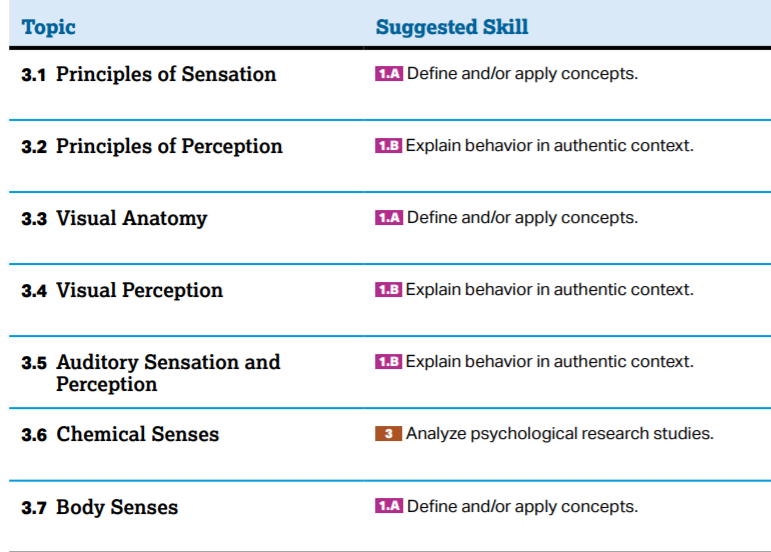Assignments Requests from outside of my district will be denied.
PresentationsHelpful LinksVideos |
Unit 3: Sensation and Perception
AP Exam Weighting: 6-8% Psychologists study sensation and perception to explain how and why externally gathered sensations and perceptions impact behaviors and mental processes. Using input from several anatomical structures, the sensations we perceive process and interpret information about the environment around us and our place within it. This results in perceptions that influence how we think and behave. In this way, sensation and perception provide a bridge between the biological and cognitive perspectives, offering aspects of both for explaining how we think and behave. Unit 3 builds on the biological foundation of psychology established in the previous unit. This progress toward understanding the brain, sensory organs, and central nervous system highlights the physiological processes involved in an individual’s perception of their surroundings. Students should be able to describe examples of anatomical structures, physiological processes, and psychological concepts related to sensation and perception. Understanding the effects of sensation and perception on behavior and mental processes builds on what students learned in Unit 1 about psychological theories and perspectives, particularly their strengths and weaknesses. Students will also increase their understanding of scientific investigation, furthering their understanding of the physiological process of energy transduction as it relates to chemical senses. Preparing for the AP Exam: Much like Unit 2, the content of this unit requires students to make connections between physiology and psychology. For example, students may be asked to relate a person’s receipt of information in their environment with their perception of that information. Students tend to provide an inadequate amount of detail to demonstrate understanding in response to questions related to anatomy. For example, an inadequate response about the role of the cerebellum would be, “It helps you move.” This is not enough information, because the parietal lobe also aids in movement. The response, “It helps you coordinate your movement,” indicates deeper knowledge. In some cases, when a familiar word appears in a free-response question, students tend to give a definition of the word as their response when more is needed to earn the point. |
